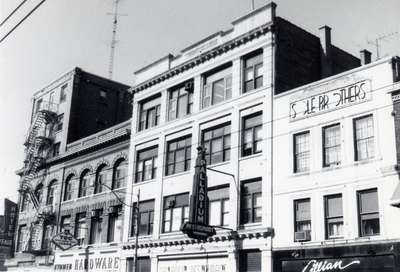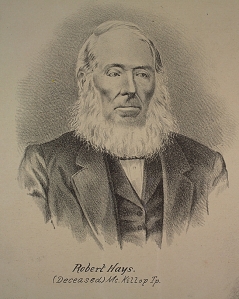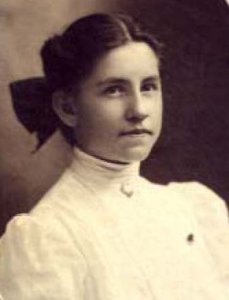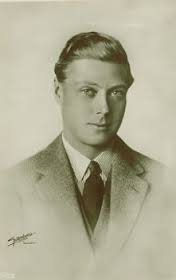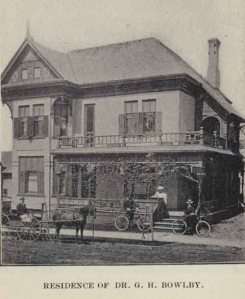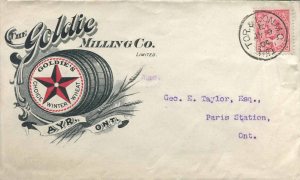Louis Croin Mudge an evil man once operated in the southern half of Waterloo County. Lou and his gang operated over an area between Galt and Plattsville and for a time in the 1860s at Blackhorse Corners where he ran a hotel and connected with the hotel was agang of notorious highway robbers. Locals were advised to arm themselves when travelling in the area. He was of good honest stock from a prominent family in Blenheim and North Dumfries Townships.
 In 1870 he was driven to move to the United States and became even more vile. Settling at Florence, Wisconsin he involved himself in prostitution, and murder.
In 1870 he was driven to move to the United States and became even more vile. Settling at Florence, Wisconsin he involved himself in prostitution, and murder.
COMPACT WITH THE DEVIL.
Louis Mudge, locally pronounced “Mutch,” a notorious character living in the southern part of Waterloo County in the middle part of the last century, was believed to have made a compact for forty years with the Devil. He was much dreaded by the people living in the neighborhood. It is said that he once escaped from a moving train with a woman, and took flight across a lake, with the officers of the law in hot pursuit. He was never caught, however, because the Devil always helped him. (Roseville.)
FOLK-LORE COLLECTED IN THE COUNTIES OF OXFORD AND WATERLOO, ONTARIO. BY W. J. WINTEMBERG.
________________________________
“Black Horse Inn itself was purchased in 1853 by the owner Nelson Newcombe and his wife Fanny. He and his wife and four children lived at the inn while offering room and board for travellers passing through. A man of local history, William Campbell, once told Harley about the inn. He described the building as two storeys with a large front porch and bedrooms upstairs which could be accessed by a stairway that entered into the centre of a long narrow hall. Records held from 1851 and 1861 show that the tavern was a frame building with “five spare bedrooms and stabling for eight horses”. The foundations proves that the inn stood at a size of 70′ x 40′.
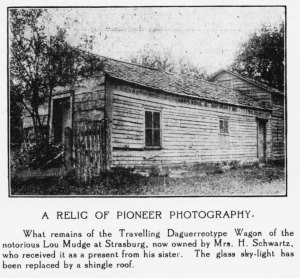
Chronicle-Telegraph Newspaper, 100 Years of Progress in Waterloo County Canada Semi-Centennial Souvenir 1856-1906 (Waterloo, Ontario, Canada: Chronicle-Telegraph Newspaper, 1906) Travelling wagon of Lou Mudge at Strasburg, ontario
The inn became a popular stop-over area between Galt and Plattsville and not only did it provide a room to rest but also a bar, dining room and sitting room. It was said that it was at the Black Horse Tavern where a group of notorious highway robbers directed under Lou Mudge worked out of. David Goldie, son of John Goldie founder of Greenfield Village, was advised to bring a gun with him as he traveled down the road past the tavern.”
The Deserted Village A Black Horse Corner Mystery By Rachel Morgan Redshaw, Historical Researcher of the North Dumfries Municipal Heritage Committee http://www.ayrnews.ca/uploads/files/Historical%20Stories/Page10%20black%20horse%20corner%20pdf.pdf
________________________
WOLVES. HUMAN AND OTHERWISE
THOSE AWFUL wolves!!!”
My wife exclaimed, as a long, low, blood. freezing howl sifted to our ears with the pine. needle, wind rhythms. It came from a mile north on the course of a late fall gale. Our baby, a girlie a year old, slept like a little hairless savage in a padded, corn-can box. The wolf howl did not reach the tiny ears. We were in the back room of a rakish, one. story shack. There were three such rooms, just little cages partitioned with rough ceiling boards, with broken tongues and warped edges, making cracks that pre-vented anything like eye privacy. As for hearing, our ears were not shut off at all. I used the front end of the building as a print-ing office. It contained an old Washington hand lever. press and a new Taylor cylinder, painted as floridly as a German reception room. There were two job presses, a Peerless and a Universal-both new-a paper cutter, imposing stone, type cases, small piles of print and job papers, a big box stove, and the usual athletic towel, ethiopic with ink. The smell that came from the room needed no ambergris as a matrix, but was like wild roses in the nostrils of a young, country newspaper man.
The blood. searching howl was repeated in greater volume-four wolves this time. It was getting late in the little mining town, but drunken shouts and the crack of a shot could now and then he heard.
“We can’t live here. Chase,” my wife said. “Even if we can, it is no place for the baby.”
“You arc right,” I replied. “Just give me a little time to clean this place up and make it a fit place for decent people. If I fail, we will go back to Milwaukee or some other place where outlaws are not the law.”
This took place at Florence, Wisconsin, in the heart of the Menominee iron range, One of the Lake Superior iron ore districts. Conditions here were similar to those of every new range. There is always an outlaw headquarters in all new regions remote from disciplined centers. Florence, at this period of the early eighties, was a metropolis of vice. There was gambling on the main streets, outdoors inclement weather and unscreened in-doors when driven in by cold and storm. Prostitution was just as bold. Its red passion garbing paraded every prominent place in town. A mile out of town, Mudge’s stockade was the central supply station. It was the prison used by the nerviest white slavers that ever dealt in women. A big log camp with frame gables held a bar and dance hall and stalls on the first floor. On the second Thor were rooms about the size of those in a Tokio Yoshiwara. A third. floor attic contained dungeons and two trap doors. In the cellar were dark cells and a secret passage, well timbered with cedar, leading to where the hill on which the stockade was lo-cated broke down into a dense swamp. Surrounding this camp of death, and worse, were sharp pointed palisades, ten feet high, of the kind used against the Indians to inclose pioneer blockhouses. There were loopholes. Two passages led through the stockade. One was wide enough to admit a team. This was fastened with hornbeam cross bars. The other entrance was narrower and for commoner use. It was protected by a solid sliding gate of iron-wood. On either side of this gate, inside, two big, gaunt, terrifying timber wolves were chained. It was the howls of these four wolves we had heard. This stockade was a wholesale warehouse of women. There were several in the Lake Superior iron country in the early days, but l think this one at Florence was the most notorious and the worst. It was built by “Old Man” Mudge. He was a white. livered, sepulchral individual who wore a cotton tie, a Prince Albert coat and a plug hat; even wore this outfit when he fed the wolves. Mudge worked as a preacher through northern Indiana and Ohio and the scoundrel used his clerical makeup to fine advantage. He had a ready tongue and roped in girl after girl. Not much attention was paid in chose days to pimping and procuring. Whenever a murder grew out of his acts, the old fox would so involve his trail that, if it led anywhere at all, a church was at the end of it, and that would throw off the sleuth.
Old Mudge ruined his daughter Mina, and she was “keeper” of the place. Mina Mudge was a stunning woman. Her concentrated depravity, for she too had a child and brought it up in infamy, was glossed over by a tine animal figure, a rubescent complexion, semi. pug nose, lurking gray eyes, sensual lips and sharpish chin. Her lips were the clew to passion, and eyes and chin betokened the cruelty of a she hyena. Girls were wheedled or beaten into submission, and nearly always when she sold them she had them broken to the business.
Two days before, in the evening, a shrinking, girlish young woman was found just outside our door by my wife. She cowered and shivered and looked wild. eyed. It took some time to coax her tn. After warmth and food, she told her story. Old Mudge had found her on a farm in Ohio. An orphan, she was sort of bound out, and her life was one of work and little else. Rather attractive, she was spied by the old serpent, and taken north “to a good home.” In her heart the girl was good and she was brave. Mina Mudge starved her, beat her, tied her ankles and wrists with thongs and, to break her in with terror, fastened her just out of the reach of the wolves. It was night, and the girl grew cold with exposure and fear. Her wrists and ankles shrunk some, and she wriggled out of the cutting thongs. Then she fled to the swamp and hid until hunger forced her to search for food. We took as good care of her as our means afforded and planned her complete rescue. The day we heard the wolves howling, as men-tioned in the beginning of the chapter, the girl disappeared. It was years later before I knew what had befallen her. Mudge’s gang had located and trapped her. They forcibly kidnaped her and carried her to the wolf stockade. There she was given no chance again to escape. Her spirit was broken. She was sold to a brothel. keeper in Ontonagon County, Michigan, and was murdered by him one night in a ranch near to the Lake Superior shore. Murders often occurred, but those guilty were seldom pun-ished. When this girl so mysteriously disappeared from our house, I was suspicious. I went to the sheriff, an Irish saloon-keeper, but could not get him to act. He was either a member of the gang or honestly afraid.
The Mudge gang was organized over a territory including the region for five hundred miles south of Lake Superior from Canada to Minnesota. “Old Man” Mudge was as much of a genius in some directions as he was a devil in others. Compared with him, Machiavelli was a saint. They did not confine t hem selves to woman stealing. They would run off witnesses when arrests occurred near the law. and. order line. If they could not get rid of them any other way, the witnesses were killed. Any man who showed an inclination to oppose the gang was either intimidated or murdered. Within their own ranks a rebel never got away alive. Mudge tolerated no rivals. No sea pirate was ever more bloodthirsty or vengeful. The most notorious murder he was responsible (or was that of Dan Dunn at Trout Lake. Dunn was just as bad a man as Mudge, and not so much of a sneak about it. That was really how Mudge came to get him.
Such were conditions in the iron country when I arrived. The picture cannot he overdrawn. I had gone there upon a telegram sent by Hiram D. Fisher, discoverer of the Florence mine, to Colonel H.. A. Watrous of Milwaukee, asking him to “send up a young fellow not afraid to a newspaper.” It was a weekly publication. The owner and editor, a man of culture and courage, too old and too fine for the rough pioneering and outlaws, had just “disappeared.” The gang was against all newspapers and dead against any that tried to improve conditions or oppose them in any way. Just a little time before they had burned the Manistique Pioneer office and had tried desperately but unsuccessfully to assassinate its brave editor, the late Major Clarke, a veteran of the Civil War. All along the line they had terrorized editors if possible. So the first night after I arrived they shot out my windows and shot a leg off one of the job presses, just to show me what they would do to me it I wasn’t “good.”
A short time before that the gang had gotten down on Captain William E. Dickinson, superintendent of the Commonwealth mine, two miles from Florence. Captain Dickinson had come there from the New York mine in one of the older Lake Superior districts. He was fearless and a man of order and high ideals. With a fine family of young children, he felt the necessity of improving conditions. Successful in his previous environment, he did not apprehend serious trouble. But he did not correctly take the measure of the desperate characters who made up the Mudge gang. Hardly had he started to move against them before they stole his little son Willie. They sent him word that if he fought them they would kill the child. It was a knife in his heart, the wound of which finally carried him to his grave. Captain Dickinson spent money, followed clews, sent spies to join the gang and gave up every thought except the recovery of his little son. It is nearly forty years ago now. Captain Dickinson has gone to his final reward. Where Willie Dickinson is or what became of him or whether he is dead or alive, is a mystery to this day. It is the most piteous tragedy of scores enacted by the iron pirates.
Something had to be done. I began a study of the situation in detail. The encouraging fact was developed that the law. abiding citizens outnumbered the outlaws. A majority of them were timid and could not be depended upon to act, but we could be certain that not many of them would openly join the leeches. Many men with families deplored conditions but feared that a war on the toughs would hurt business. Hasn’t it been always so? Then to my amazement and chagrin, for I was only twenty. three years old and to a degree unsophisticated, I uncovered the fact that that Borgia of a Mina Mudge had something on half or more of the merchants, who thought easily or made that excuse to their conscience, that they had to be good fellows and go to her place with the miners and woodsmen in order to get business. The outlaws laws were able to keep close tab on the plans of any who threat. coed them through these dwellers in the twilight zone of morals.
As soon as I could he certain of some backing, I attacked Mudge and his gang in my little paper. It was a thunderer there though, no matter what its size. I charged crimes home and named those who were guilty or probably so, whenever I had facts or tangible suspicions. The time must have been just ripe for it, for some astounding things occurred. Some of those against whom I made charges came to see me; not all peaceably. But from some of them I obtained denials of participation, and one or two gave to me invaluable inside information. Consequently I was informed in advance when my office was to be wrecked, and when I was to be gotten rid of. I built a little conning place of glass and kept someone on watch there every daylight moment. Also I bought Winchesters for all the office force, and for a long time every type stand was a gun rack for a repeating rifle. At night I took extra care and kept watch.. A couple of faithful dogs with plenty of bulldog blood guarded the office, and were much better for the purpose than Mudge’s wolves, but did not make as terrifying a setting in the mind of a tenderfoot.
I found a fighting preacher at the little mission church in Flor-ence in the person of Harlan Page Cory, a young Presbyterian just suited to the work to he done and entirely unafraid. An undersheriff named Charley Noyes, from the Androscoggin country, was found to be clean and brave and dependable. Bill Noyes, his brother, was a six looter plus, and the best shot and dry ground trailer anywhere around. He was not afraid of a mad catamount, and his morals had sprouted in the Green Mountains where Ethan Allen got his. Bill was eager to help clean up.
A little concave chested hardware man named Rolbstell, with whiskers like a deer mouse and a voice like a consumptive cuckoo, was found, when the meter was applied to him, to be as full of good points as a box of tacks. There was no law against shining deer in those days; anyhow not in Florence. Rolbstell built a scaffold one day, twenty feet up in a birch that leaned over a connecting gut of Spread Eagle Lake, where a fine runway crossed. The first dark, soft night that came he climbed up there with a bull’s. eye lamp cocked over his left eye. He nearly went to sleep before he heard anything. Then he suddenly came to and saw a pair of silvery eyes and let go at them. Forgetting in his state of mind where he was, he stepped off the scaffold just as if he had been on the solid ground and down he went. That is where Rolbstell made his reputation. He lit astride of a two- hundred pound buck that he had wounded and which was floundering in about four feet of water. Of course, he lost his gun in the descent. Pulling out his tomahawk, he nearly chopped the buck’s head off before he succeeded in killing him. Rolbstell had plenty of that intestinal courage that was the fascination of Tsin, who built the Great Wall and measured all men by it. So he he. came a leader, if not the leader, in the new movement.
With these and others assured, we called a meeting and organized the Citizen Regulators. The meeting was such a hummer and so many joined that the sheriff and district attorney had a street duel the next day, growing out of a row that was caused by each trying to shift blame upon the other. I had publicly charged them both with being controlled by the Mudge gang. The district attorney shot the sheriff through the lungs. A lot of the sheriff’s friends gut a rope ready to hang the lawyer, who really was one of the worst of citizens, while the sheriff had told several that he intended to join the Regulators. Meanwhile, the sheriff lived long enough for the mob to cool off. The preacher and I decided that we must get rid of all crooked and cowardly officials.
I started to Milwaukee and Madison to enlist influence and see the governor, in order to have the district attorney removed and a man appointed who would enforce the law. All the way to Milwaukee I was harassed by telegrams for my arrest. The gang tried to capture me at the train, but I learned of their plans in time to elude them. Then we had a wild race through the woods to the Michigan line. If they had caught me in Wisconsin they were going to finish me in some way. The pursuit kept up almost to Inns Mountain, which was nearly as bad as Florence at the time. I dodged them but was afraid to stop at Iron Mountain be-cause the local authorities there were believed to be under the control of the Mudge outlaws. It was night. I had expected to
take an evening train. Prevented from doing this, I ran two miles through the woods to Commonwealth. There one of my faithful printers, an Irish lad named Billy Doyle, had a team in waiting. Hastily climbing into the buckboard and taking the lines, I lashed the horses into a gallop. Over any shoulders l could see the gang coming on foot, on horse, and in rigs. I had a Colt’s revolver and could shoot it quite well enough. Billy had thrown in a Winchester. I made up my mind they would not take me in Wisconsin without a fight. We madly galloped over the corduroy roads in the dark. That it was night and the pursuers were unorganized was all that saved me. We crossed the line. On the outskirts skirts of Iron Mountain I gave the reins to Billy and jumped out and went on alone. Safely making a detour of the town, I took the railroad track and hiked southwards towards law and order.
I was in Michigan. Between Keel Ridge and Quinnesec three alien stepped out of the gloom and leveled guns at my head. I obeyed their order to hold tip my hands and they took me hack to Iron Mountain by main force, and not a sign of legal warrant. They were Mudge agents. It was after midnight. I made a big roar as soon as I got where anybody could hear. In spite of the racket I made they took me to a place which was not the jail and locked me in a room. Before they got me confined I managed to send word to Cook and Flannigan, whose firm of attorneys at Norway was the ablest on the Range. The late Hon. A. C. Cook got to me and secured my release. To this day I do not know how he did it. Perhaps his partner, R. C. Flannigan, now a prominent mining country judge, and a good one, could tell if he wished to. I continued on my way. Efforts were made to stop me at Mari-nette and Green Bay. These were unsuccessful. Finally I got to Milwaukee where I had any number of strong friends. Lemuel Ellsworth had just become chief of police, and the present Mil-waukee chief, John T. Janssen, was on the detective staff. I went to the central station to call upon them, as they were old friends of mine dtving my police reporter days. The chief handed me a telegram to read. It was for any arrest. They had sent it to the wrong place. I told my story. All of us knew the chief affectionately as Lens. He said: “Glad to see you, Chase. Now, let’s do something to those hell. hounds. I will wire I have you and ask them to send for you with a strong guard. This will possibly bring a crowd of them down, and I will throw them all into the bull pen. ”
“Of course I can’t wait to do that,” I replied, for I had to accomplish my bigger mission and return as quickly as possible. During the afternoon l received a telegram signed “H. P. Cory.” It read: “Don’t come back. They are going to kill you if you do. ”
I knew it as a fake at once, for that preacher would have had me come back and he killed rather than have me run away from the fine fight I had started. 1 felt the same way. It was only wisdom to be apprehensive enough to be on the alert, as the gang had not hesitated to resort to murder in the dark before.
I saw rugged Jeremiah M. Rusk, then governor of Wisconsin, and secured the appointment of a clean, but rather gentle lawyer named Howard E. Thompson as district attorney, to succeed the Mudge gang lawyer, who, although possessed of a kind of brute bravery, got out of the way. Before he had downed the sheriff that officer had bowled him over, after being shot through the body himself, and stood over him, futilely snapping a revolver, all the loads of which had been discharged, in a frantic attempt to kill. Then the sheriff fell into the pool of blood that had trick-led around his feet and the lawyer bad man was nut off.
Governor Rusk gave me every encouragement.
“Go after them, boy,” he said, “and if you need help just say the word. I’ll back you with the troops if it is necessary. ”
I made my way back north about as rapidly as I had fled. The gang was in a panic when they saw me and heard of the support the governor had fortified me with. I had it told to them in as amplified and impressive a manner as possible and then I played it up in my paper with all my might and type. The gang was on the run from that time, but it was not beaten yet. Dives and re-lays were started along the border so that the outlaws could jump from one State to the other handily.
Claudius B. Grant was a circuit judge in the adjacent region of Michigan. He became a terror to the had men and women and clearly showed what a man rightly constituted can do with the law in his own hands. He was waging a solitary war against the gang, and sheriffs and prosecuting attorneys who were their tools. Finally he made it so hot for them on his side, and we so reciprocated on our side that the had people began to look for other and less troublesome pastures. They tied to Seney, Trout Lake, Ewen, Sidnaw, Hurley and other points in the Lake Superior country out of Grant’s jurisdiction, and out of our reach, where they operated for some years without molestation. There was a temporary renascence of outlawry in Judge Grant’s district because the gang had gotten rid of him by designedly electing him to the Supreme Court of Michigan. But it did not last long. Civilization must have something more than that kind of outlawry to subsist upon, and civilization was growing a good deal like a weed.
All of this was not achieved as easily as it has been briefly written. There were many clashes and exciting performances. Both sides were high handed. Shootings occurred by day and night, and the tight was a real battle.
At first the gang had nearly all the law officers on its side. By degrees we changed this. The average fellow in office is quick to try to pick the winning side. These trimmers, usually so despicable, were a real help to us because they trimmed gradually to our side.
Mudge withdrew his worst operations to more remote spots in the woods. The Regulators determined to clean all of them out. The law was too slow under the conditions that existed and the punishments inadequate. At the time there was really no law against white slavery and procuring.
Pat McHugh, a bully and retired prize fighter, was Mudge’s head man. Nearly everybody was afraid of him. He had even been known to fight in the daytime with his backers at hand, and he was fairly quick with a gun, but could not fan. On a day agreed upon the Regulators, armed with Winchester rifles, Colt revolvers and blacksnake whips, starred on a rodeo. They drove the toughs off the streets. Those who did not move quickly enough were lashed smartly with the blacksnakes. Theirs had been a reign of terror long enough. It was our turn. They showed as many temperaments as one could find among any men and women. Some were whimpering cowards. Others were sullen. The women were most hold and loudest in profanity and vulgarity. A woman has capacity to be the very best and the very worst. McHugh was one of the first to run. He hid in the swamp stockade with half a dozen others of the gang. The Regulators rode down against them. They opened a Ian fire with Winchester repeaters. The Regulators replied and charged. It fell to Bill Noyes to capture Pat McHugh. The bully had often boasted what he would do to Bill if he ever got a chance. Now he hid into the swamp, revolver in hand. Bill saw him and ran after him. They dodged from tree to tree, Indian fashion, exchanging shots from time to time. Bill was too good a woodsmen for McHugh. He loaded his gun as he ran and soon had a drop on the leader of the outfit. McHugh fell on his knees and begged for mercy. Bill spared him. He said to me only a short time ago:
“Chase, I reckon I oughta killed that red. handed devil that day I got him in the swamp, but I’m kinda glad I didn’t, ’cause it goes agin the grain with me to kill anything I can’t eat. ”
After that we burned a number of stockades and stain had the community so fit to live in that I spent four happy years there. And my wife, who had given up a good home to share her lot with a young reporter, was contented, and our girlie grew (at and crowed when her first brother was born in the little boarded rooms full of cracks, in the rear of the one. story, country printing office.
What became of Mudge will never be told. Only a half dozen Regulators ever knew.
The Iron Hunter by Chase Osborn 1919

